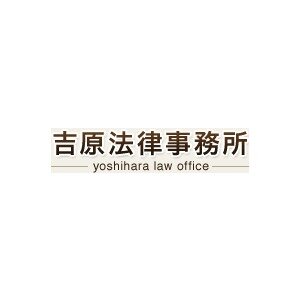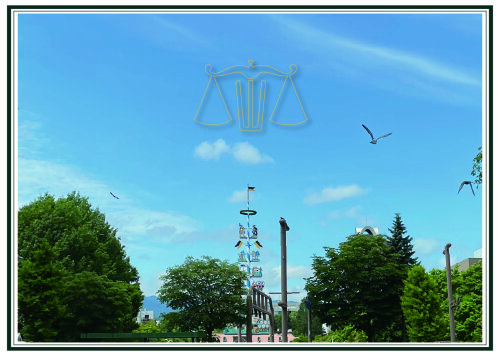Best Child Custody Lawyers in Sapporo
Share your needs with us, get contacted by law firms.
Free. Takes 2 min.
Free Guide to Hiring a Family Lawyer
List of the best lawyers in Sapporo, Japan
About Child Custody Law in Sapporo, Japan
In Sapporo, Japan, child custody laws are primarily governed by the national statute, the Civil Code of Japan, as family law is not legislated differently at a local level within the country. After a divorce, there are two types of custody in Japan: 'shinken' (parental authority) which is akin to legal custody and involves making decisions for the child, and 'kangoken' (custodial rights), which refers to physical custody. In most cases, Japanese courts tend to award sole custody, historically favoring the mother, especially for young children. Joint custody is not traditionally common, although social perspectives on this are gradually changing.
Why You May Need a Lawyer
Individuals may find it necessary to engage a lawyer in child custody matters when facing divorce or separation, navigating international custody laws, or when the welfare of the child is in question. Disputes may arise when both parents cannot agree on custody arrangements, when one parent wishes to relocate with the child, or if there is a concern about the child's upbringing. A lawyer can help ensure that your rights are represented in court and that the best interests of the child are central to any custody decision.
Local Laws Overview
While statutes may be applied nationally, local family courts in Sapporo handle the proceedings and enforcement of child custody. The key principle guiding custody decisions is the welfare of the child, with considerations including the child's age, the parent's ability to care for the child, the emotional ties between the parent and the child, and the child's wishes. In Sapporo, as elsewhere in Japan, there is a 'visitation' system instead of shared custody, allowing the non-custodial parent to spend time with the child.
Frequently Asked Questions
What is the standard process for determining child custody in Sapporo?
In Sapporo, the custody decision is usually made during divorce proceedings, wherein the family court assesses what is in the child’s best interests. If parents cannot come to an agreement, the court will intervene.
Can fathers gain custody of their children in Sapporo?
Yes, although historically mothers have been favored, fathers can gain custody if it is deemed to be in the best interests of the child.
Is joint custody an option in Sapporo?
Japanese law does not typically recognize joint custody post-divorce; however, changes in social attitudes are slowly influencing the legal discussions around this topic.
How does visitation work in Sapporo?
The non-custodial parent is granted visitation rights, which are agreed upon either by the parents or by the court if agreement cannot be reached. These rights are not as robustly enforceable as in some other jurisdictions.
What role does a child's preference play in custody decisions?
A child’s preference is considered by the court, particularly if the child is of a certain age and maturity, though it is not the sole determining factor.
Can custody arrangements be modified?
Yes, custody arrangements can be modified if there is a significant change in circumstances that affects the welfare of the child. Both parties must agree to the modification or otherwise petition the court for a decision.
How does international custody work if one parent is not in Japan?
International custody disputes are complex and are governed by Japanese law in conjunction with international treaties such as the Hague Convention on the Civil Aspects of International Child Abduction, if applicable.
Will I need to attend family court in Sapporo if I am seeking custody?
Yes, you will likely need to attend family court hearings if there is a dispute about custody that cannot be settled outside of court.
Are mothers more likely to be granted custody over fathers?
Traditionally, mothers have been more likely to be granted custody, especially of younger children, but this is not a legal requirement. Each case is addressed on its individual merits.
Can I represent myself in court for a custody case, or do I need a lawyer?
While you can represent yourself, the complexities of family law suggest that having a lawyer could be crucial in presenting your case effectively and understanding the legal nuances.
Additional Resources
For those seeking legal advice on child custody in Sapporo, resources such as the Japan Federation of Bar Associations, the local Sapporo Bar Association, and non-profit organizations focusing on children's rights and international custody cases can be particularly helpful. Additionally, the Sapporo Family Court may provide resources or guidance for individuals navigating custody disputes.
Next Steps
If you need legal assistance with a child custody case in Sapporo, the first step is to consult with a family law attorney who has experience in child custody matters. You may seek recommendations through the Sapporo Bar Association or contact legal aid services if you require assistance based on your income level. Preparing documentation related to the child's upbringing, along with any evidence that supports your suitability as a custodial parent, can also be helpful when you meet with your lawyer.
Lawzana helps you find the best lawyers and law firms in Sapporo through a curated and pre-screened list of qualified legal professionals. Our platform offers rankings and detailed profiles of attorneys and law firms, allowing you to compare based on practice areas, including Child Custody, experience, and client feedback.
Each profile includes a description of the firm's areas of practice, client reviews, team members and partners, year of establishment, spoken languages, office locations, contact information, social media presence, and any published articles or resources. Most firms on our platform speak English and are experienced in both local and international legal matters.
Get a quote from top-rated law firms in Sapporo, Japan — quickly, securely, and without unnecessary hassle.
Disclaimer:
The information provided on this page is for general informational purposes only and does not constitute legal advice. While we strive to ensure the accuracy and relevance of the content, legal information may change over time, and interpretations of the law can vary. You should always consult with a qualified legal professional for advice specific to your situation.
We disclaim all liability for actions taken or not taken based on the content of this page. If you believe any information is incorrect or outdated, please contact us, and we will review and update it where appropriate.











